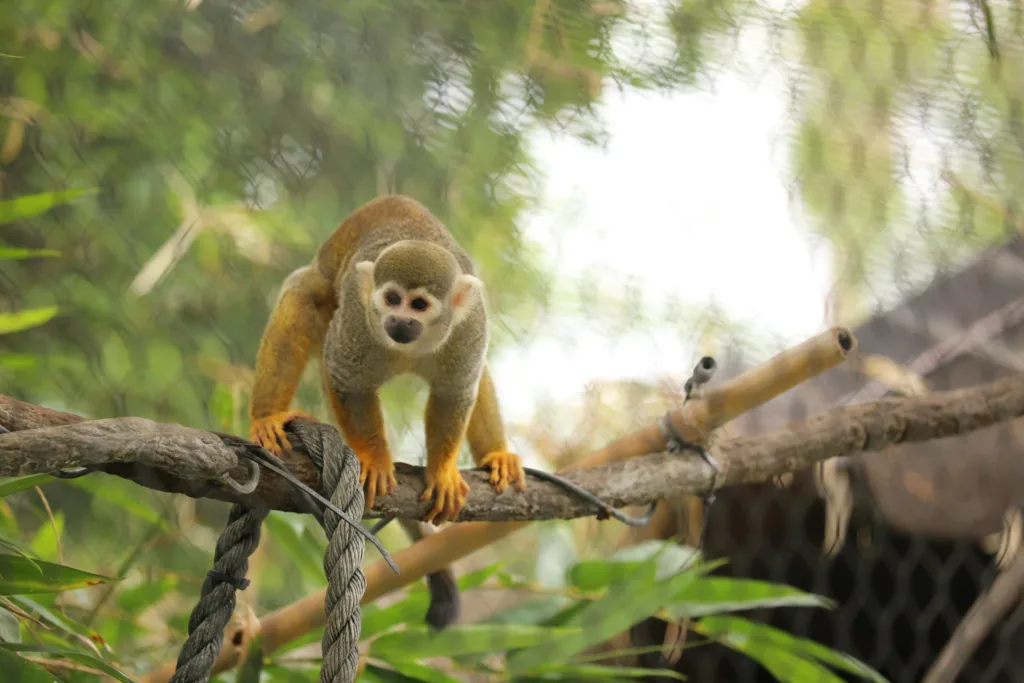Reid Park Zoo and the Tucson International Airport (TUS) are teaming up to bring the Association of Zoos and Aquariums’ “I Travel for Wildlife” campaign to TUS. Featuring special informational displays in the airport, the campaign aims to raise awareness of the tragic effects of illegal wildlife trafficking and wildlife products that are contributing to the depletion of wildlife populations around the world.
According to the Wildlife Conservation Society, illicit wildlife trafficking is estimated to be between $7.8 billion and $10 billion per year and is growing. Ultimately, the campaign’s goal is to reduce the demand for illegal wildlife products by engaging and educating travelers about how to make better choices in the souvenirs they purchase when traveling and avoiding purchasing exotic animals as pets.
“Saying no to these products is saying yes to giving our children and grandchildren a world that includes elephants, rhinos, tigers, and thousands of other amazing species that share the Earth with us and are threatened with extinction,” said Dan Ashe, President and CEO of the Association of Zoos and Aquariums. “As consumers you hold the key ending wildlife trafficking. Thank you for the Reid Park Zoo and Tucson international airport for providing this opportunity to educate travelers to help and wildlife trafficking and to save animals from extinction.”
The airport displays contain a QR code that travelers can scan for information on how to make informed choices and numbers to call to report wildlife trafficking should they observe it.
“The illegal trade of animals and plants is a significant global issue, posing threats to biodiversity, livelihoods, and public health and all too often airports are at the center of this issue. We are committed to being stewards of change and awareness and are honored to be partnering with Reid Park Zoo on this initiative” said Tucson Airport Authority President/CEO Danette Bewley.
“For over six decades, Reid Park Zoo has worked to save wild animals and wild places,” says Nancy Kluge, Reid Park Zoo President and CEO. “Wildlife trafficking is a bigger problem than you might imagine around the world. It takes a terrible toll on the unfortunate animals who are affected and can also impact human health by contributing to the spread of zoonotic diseases such as COVID,” she adds. “To address wildlife trafficking, it takes all of us working together to protect wild animals and their ecosystems. We are grateful for this partnership with the Tucson International Airport in sharing information on this important issue and for joining in conservation efforts.”
Toto, a squirrel monkey at Reid Park Zoo, is recovering and learning how to be monkey again in the safe environment of the Zoo after being a victim of wildlife trafficking. Border patrol agents confiscated Toto, who likely would have been put up for sale in the pet trade. As so often happens in these cases, Toto was malnourished and his teeth had been filed down to keep him from biting. Upon arriving at Reid Park Zoo, he required multiple dental surgeries and other medical treatment to restore him to health. The Zoo has since brought in two younger squirrel monkeys to form a troop with Toto to help teach him squirrel monkey behavior and how to live with others of his species. Today, he is beginning to thrive.

“Toto’s story had a positive ending, but, sadly, many wild animals caught in wildlife trafficking, are not faring well,” says Jennifer Stoddard, Reid Park Zoo Director of Conservation and Education. “Each year, about 20,000 elephants alone are killed for their ivory. It’s important to be voices for wildlife who can’t speak for themselves and to work toward a more sustainable world where animals and humans can live together and thrive,” says Stoddard.
For information on the “I Travel for Wildlife” campaign and how you can help stop wildlife trafficking, visit itravelforwildlife.org.
